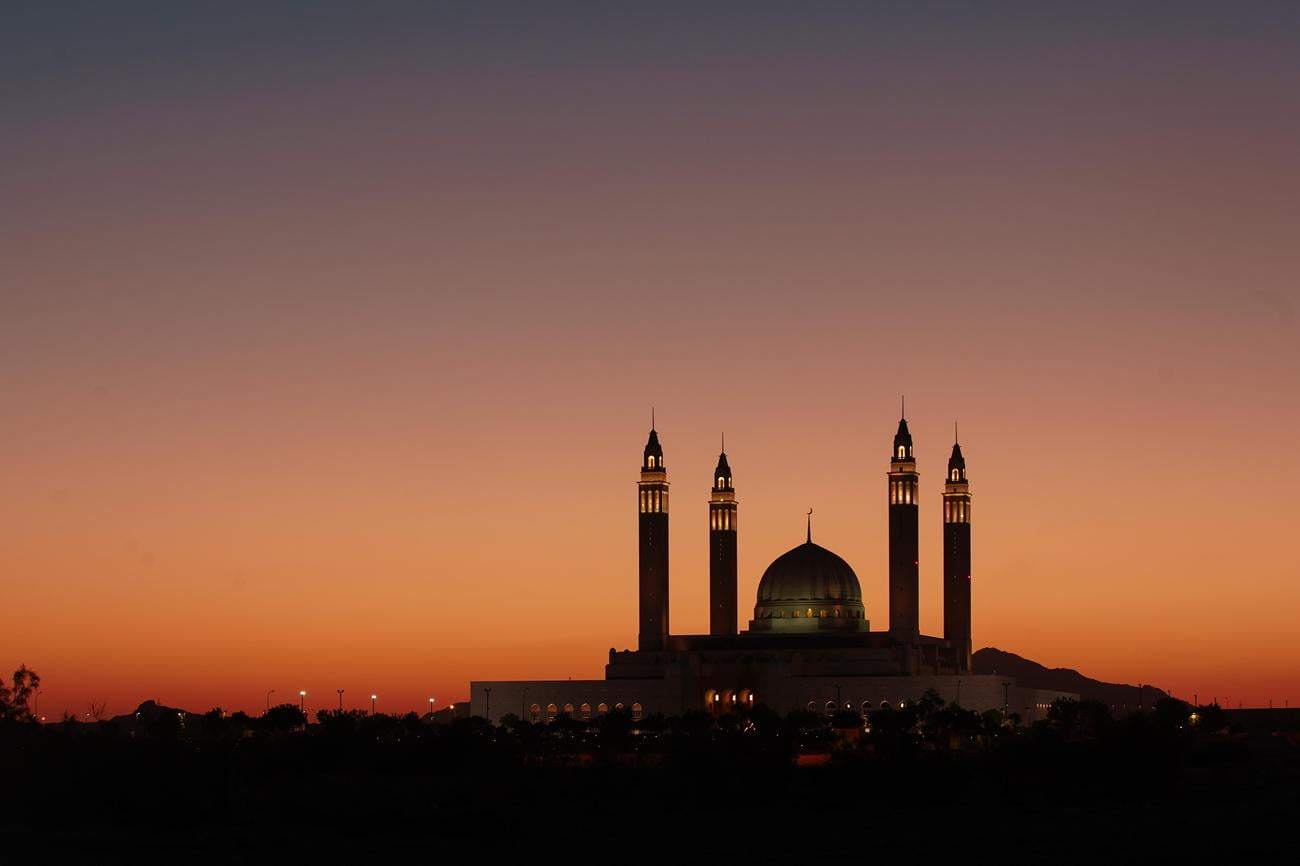Delving into the heart of Central Asia lies Kyrgyzstan, a land that boasts a rich tapestry of cultural traditions and religious practices. In this captivating exploration titled “The Spiritual Landscape of Kyrgyzstan: Exploring Religion and Culture,” we embark on a journey that uncovers the fascinating world of religion in Kyrgyzstan. As we navigate through the intricate web of beliefs and customs, we delve into the lives of the Kyrgyz people, discovering their spiritual practices and the deep-rooted traditions that shape their lives. Through meticulous research and firsthand interviews, we aim to shed light on the diverse religious tapestry that defines this captivating nation, fostering a greater understanding and appreciation of Kyrgyzstan’s unique spiritual landscape.

Kyrgyzstan Religion
In the diverse country of Kyrgyzstan, religion plays a significant role in shaping the spiritual landscape and cultural fabric of the nation. Islam holds the position of the predominant religion, with approximately 90% of the population identifying as Muslim, mostly Sunni. However, it is important to note that Kyrgyzstan is a multicultural and multi-religious country, with various religious communities coexisting harmoniously.
Islam was introduced to Kyrgyzstan around the 8th century and has since become deeply ingrained in the society. Pre-Islamic traditions and customs of the ethnic Kyrgyz people have significantly influenced the practice of Islam in the country. This unique blend of Islamic teachings and indigenous beliefs has resulted in a distinct form of Islam in Kyrgyzstan, encapsulating the richness of its cultural heritage.
While Islam constitutes the majority religion, Kyrgyzstan also embraces religious diversity. The country grants freedom of religion in its constitution, allowing individuals to practice their faith freely. Apart from Islam, there are also smaller religious communities, including Christians (7%, including Russian Orthodoxy), Buddhists, Baháʼí, and other minority religions. This multi-religious makeup highlights the cultural tolerance and acceptance that permeates Kyrgyz society.
Mosques serve as central places of worship for the Muslim community, reflecting the Islamic influences in the architectural landscape. Additionally, Kyrgyzstan provides institutes for higher Islamic teaching and other places of worship for different religious groups. This inclusive approach demonstrates the government’s commitment to fostering an environment of religious freedom and harmony.
It is important to acknowledge that the religious demographics in Kyrgyzstan are ever-evolving. In recent years, some ethnic Kyrgyz individuals have converted to Christianity, showcasing the dynamic nature of religious beliefs and practices. Missionary groups from various religions, registered with the State Committee for Religious Affairs (SARA), are also present in Kyrgyzstan, actively promoting their faith.
While the government ensures the freedom of religion, there may be occasional challenges. Registration requirements and tensions between conservative Muslims and foreign Christian groups in rural areas have been reported. These challenges highlight the delicate balance between maintaining social harmony and addressing the diverse religious needs of the population.
In addition to the prevailing faiths, Tengriism, a traditional religious belief, holds significance among the ethnic Kyrgyz population. Tengriism incorporates elements of animism, shamanism, and totemism, representing the deep connection between the Kyrgyz people and the natural world. This indigenous belief system adds another layer to the spiritual landscape of Kyrgyzstan, showcasing the coexistence of diverse religious practices.
In conclusion, the religious landscape of Kyrgyzstan reflects the country’s multicultural identity and commitment to religious freedom. While Islam constitutes the majority religion, Kyrgyzstan embraces religious diversity, allowing various faiths to flourish. The distinctive blend of Islamic teachings, indigenous traditions, and the presence of other religious communities shapes the profound spiritual tapestry found within this Central Asian nation. By exploring the religious beliefs, customs, and traditions of Kyrgyzstan, we gain a deeper understanding of the culture and foster greater global appreciation for its rich diversity.
“The religious landscape of Kyrgyzstan is a harmonious blend of Islam, indigenous traditions, and diverse faiths, reflecting the multicultural identity and commitment to religious freedom in the country.”
Kyrgyzstan is a country nestled in the heart of Central Asia, known for its breathtaking landscapes and rich cultural heritage. But did you know that there are countless interesting facts about Kyrgyzstan waiting to be discovered? From its vibrant nomadic traditions to its stunning alpine lakes, this landlocked nation never fails to captivate adventurers and curious souls. So, if you’re curious to learn more about this hidden gem, click here to uncover some fascinating tidbits about Kyrgyzstan: interesting facts about Kyrgyzstan.
Kyrgyzstan’s Move Towards Regulating Religious Schools
[youtube v=”I6gUgnEJOVg”]
Introduction
Kyrgyzstan, a country with a rich multicultural identity and commitment to religious freedom, has recently taken steps to regulate its religious schools. With approximately 90% of its population identifying as Muslim, Islam holds a prominent place in Kyrgyzstan’s religious landscape. However, the country also embraces religious diversity, with Christians, Buddhists, Baháʼí, and other minority religions coexisting peacefully. This move to regulate religious schools aims to align them more closely with the national education system, while still respecting the country’s secular identity.
Understanding the Current State
Currently, there are nearly 130 religious schools and institutions in Kyrgyzstan, catering to students who have a keen interest in religious education. These schools, mainly funded by local and international charities, fill the gap left by the secular state’s educational system, where religious studies are not included. While the Constitution guarantees the freedom of education and religion, concerns over national security have arisen with some Kyrgyz citizens joining extremist groups abroad. This has prompted the government to take a closer look at the nature of religious education and its funding sources.
According to Abdullah, a student at one of these religious schools, the combination of religious and general studies prepares him well for his future career. However, critics argue that students attending only religious schools may face challenges entering the workforce. Thus, the government aims to introduce reform that will provide a framework for religious education in Kyrgyzstan, designed to meet the needs of both secular and religious aspirations.
The Vision for Reform
The proposed reform seeks to address the concerns regarding religious education in Kyrgyzstan. The government intends to create a teaching plan that includes clear subjects relevant to religious education within the national curriculum. It also aims to ensure that teachers possess adequate qualifications and expertise in the field of religion. The new bill is expected to serve as a guideline to align religious schools with the secular identity of the country, promoting a balanced and comprehensive education system.
Striking a Balance
The move towards regulating religious schools in Kyrgyzstan reflects the country’s commitment to religious freedom while also addressing concerns surrounding national security. By implementing a framework for religious education within the national education system, the government hopes to strike a balance between secular values and the right of individuals to practice their faith. This reform ensures that students receive a well-rounded education that prepares them for success in their future endeavors.
In the words of Abdallah, “What I learn in the religious school, combined with my general studies, will make me successful in life.” This sentiment highlights the importance of blending religious and general education to create well-rounded individuals capable of contributing positively to society.
Conclusion
Kyrgyzstan’s decision to regulate religious schools demonstrates its commitment to creating an inclusive and balanced education system that respects both secular values and religious freedom. By introducing reforms that align these schools with the national curriculum, the government aims to provide students with the necessary skills and knowledge to thrive in the modern world. This move not only addresses concerns over national security but also ensures that future generations are prepared to make meaningful contributions to society.
As Kyrgyzstan navigates the evolving religious landscape within its borders, it remains dedicated to upholding its multicultural identity and fostering an environment of religious tolerance and understanding. Through effective regulations, the country seeks to create a harmonious balance that allows individuals to practice their faith while promoting a shared sense of unity among its diverse population.

FAQ
Question 1
What is the main religion in Kyrgyzstan?
Answer 1
Islam is the main religion in Kyrgyzstan, with approximately 90% of the population being Muslim, mostly Sunni.
Question 2
Is there freedom of religion in Kyrgyzstan?
Answer 2
Yes, the Kyrgyz constitution guarantees freedom of religion in the country.
Question 3
When was Islam introduced in Kyrgyzstan?
Answer 3
Islam was introduced in Kyrgyzstan around the 8th century and has since become the dominant religion in the country.
Question 4
Are there any other religious communities in Kyrgyzstan?
Answer 4
Yes, there are smaller religious communities in Kyrgyzstan, including Christians (7%, including Russian Orthodoxy), Buddhists, Baháʼí, and other minority religions.
Question 5
Are there any specific religious practices unique to the ethnic Kyrgyz people?
Answer 5
The practice of Islam in Kyrgyzstan is influenced by pre-Islamic traditions and customs of the ethnic Kyrgyz people. Additionally, Tengriism, a traditional religious belief among the ethnic Kyrgyz, incorporates elements of animism, shamanism, and totemism.
- Unveiling the Enigma: Mansoureh Khojasteh Bagherzadeh’s Public Appearances & Private Life in Iran - July 18, 2025
- Unveiling the Mystery: Mansoureh Khojasteh Bagherzadeh’s Husband: A Rare Glimpse into a Private Life - July 18, 2025
- Unveiling Masoud Khamenei’s Mother: Power, Influence, and Iran’s Future - July 18, 2025
















